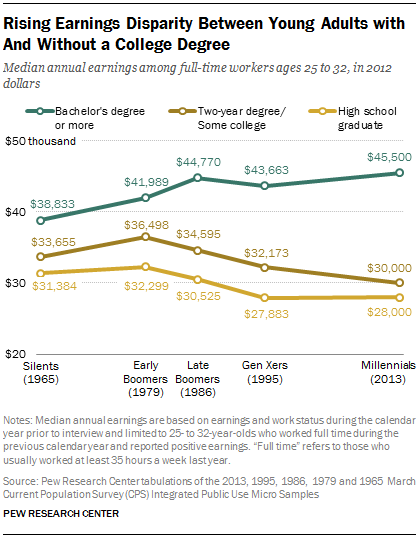
I’d like to introduce you to the Abels. They are one of the four families with immigrant parents who are responsible for my family’s history in the United States of America. Golda and Samuel sought a better life than they could have had in Eastern Europe early in the 20th century. Their children in this picture are Bernard, my maternal grandfather Robert, and their two daughters, Lilian and Ruth. Their third daughter, Shirley, would be born later. Like many Ashkenazi immigrants in the late 19th and early 20th centuries, leaving Eastern Europe was an escape from centuries of discrimination and violent riots aimed at their communities, but not an escape from hardship and prejudice. America looked at the latest wave of immigration with similar suspicions that had met the Irish – my great grandparents talked in a strange manner, they ate unusual foods, they dressed differently, they worshiped “incorrectly,” their loyalty to their new home was considered suspect.
Despite these impediments, they managed to thrive and build a life. Their son Robert became a builder and an architect of industrial buildings. Their grandchildren have served in the nation’s military, become teachers, and professionals, and today their great great grandchildren are growing up as the fourth generation of American citizens to follow them and their efforts to seek a better life. Like all immigrant families, their story shares similarities to the stories of millions of others and, simultaneously, is uniquely their own. America is somewhat in love with the archetype of the immigrant family coming to America, assimilating, and finding economic advancement from one generation to the next, and, to be sure, many families slot into that experience. But no family is entirely the same and, more importantly, there are thousands of nuances to the American experience from generation to generation.
Consider: This “Nation of Immigrants” is not made up entirely of the descendants of people who emigrated voluntarily like my family. Some families were always here, descendants of the first people to live on this continents and who were forced off their lands and killed in wars against them. Other families were brought here in chains during the slave trade and faced centuries of unrelenting cruelty and discrimination. Still other families lived on one side of a border one day and found themselves on the other side the next such as Mexican citizens living in Texas in the early 19th century. And while many millions have emigrated voluntarily over the centuries, their reasons for doing so have been as various as the people themselves. Many have come here as refugees to escape warfare and oppression. Others have come because of promises made by American administrations to those who helped in wars abroad. Others were seeking opportunities not possible in their homelands. Others seeking education. And not all of them found what they were looking for, finding instead a country that projects a message of welcome from New York harbor but too frequently offers suspicion and discrimination and violence. While I firmly believe that the story of America can be seen in the gradual increase of the franchise over the centuries, it is also true that we have often resisted that story and told vast swaths of people they were not welcome.
Teachers and schools must consider these nuances very seriously and understand our history. While it is mainstream today for many educators and school systems to extol the virtue of diversity and to offer welcome to students of greatly varied background, our reality and our past are quite different. Sixty-three years after Brown vs. Board of Education, integration remains aspirational across the country rather than a reality, and efforts to integrate our schools into truly diverse communities still meet active resistance. Further, our schools have often been instruments of enforced assimilation rather than communities of acceptance for immigrants and minorities. The Bureaus of Indian Affairs operated a school system precisely with the goal of separating native children from their heritage and completing the “work” that the Indian Wars did not finish. The often heard term “melting pot” to describe the immigrant experience has roots in deliberate efforts to enroll immigrants’ children into public schools in order to hasten their abandonment of the cultures they brought from their home countries. Both African Americans and women have been systematically denied and discouraged from equal educational opportunities based upon systemic prejudices.
Into this complicated web of family history, personal identity, and institutional priorities comes the Trump administration’s “temporary” ban on immigration from 7 majority Muslim nations and upon refugees fleeing the Syrian civil war. The administration claims that these bans are necessary for the security of the nation against the threat of terrorism. A great deal of ink has been spilled about how the order is poorly drafted without proper vetting and input from impacted agencies, about how it has unleashed chaos on travel and immigration across the world, about the ever shifting “standards” of the order that have caught up legal residents with green cards and Iraqis who risked their lives to aid American forces, about the questionable basis of the barred nations’ inclusion in the order over other nations whose citizens actually participated in terrorist attacks on the U.S., about allegations that this is a defacto ban on Muslim immigration, about the potential legal and Constitutional challenges to the order, and about whether or not the administration is overtly defying court orders issued since the executive order was signed on Friday — which just happened to be international Holocaust Remembrance Day.
Teachers, given the weight of history, have a particular challenge in this situation. According to Pew Social Trends, roughly two thirds of American Muslim adults were born in another country, a large proportion of them are from Arab countries, and a full 8% are from Iran, also included in the ban. This means that that a large proportion of the Muslim children in our schools have parents who were not born citizens. Initial estimates said as many as 500,000 green card holders, legal permanent residents of the United States, were subject to being barred from entry if they traveled abroad, and while the administration now says the order does not apply to them, the situation is extremely fluid and people justifiably are unsure of their status. We’ve seen elderly green card holders detained. We’ve seen interpreters for American armed forces in Iraq stranded as their entry was barred. We’ve seen an Iranian born professor at Yale University unable to reunite with his wife and child who were visiting relatives in Tehran:
Universities across the country are offering advice to their international students potentially impacted by the ban and are announcing they will refuse to share students’ immigration information with the federal government.
If you are a public school teacher, it is possible that the ban does not directly impact any students in your classroom, but the indirect impacts should be self-evident. As educators, we are tasked with a responsibility to truly live up to the promises made to immigrant families – equal treatment, opportunity, and acceptance. While our nation has been imperfect at fulfilling those promises as a whole, and while we have tried to shoehorn all immigrant families into simplistic narratives, individually, we can resist those injustices and make our own classrooms and schools places that strive for better. Our nation has feared and scapegoated immigrants throughout history and yet the vast majority of us would miss the contributions to America made by our varied immigrant communities over the centuries. Can you, as a matter of classroom community and curriculum, celebrate the contributions and cultures of past immigrant communities who were subjected to discrimination and marginalization when they arrived while looking away while even worse discrimination and marginalization is visited upon today’s immigrants? Can you teach your students that past generations were plainly wrong to suspect immigrant communities while ignoring or – worse – supporting suspicion today? If you profess that you would not have met my – or your own – immigrant ancestors with hostility, can you be quiet as this generation’s immigrants are subjected to worse?
If you teach in a community with immigrant families, your students are watching you to see if you truly value them. If you teach in a community with very few immigrant families, your students are still watching you – to learn how to respond to injustice that does not directly impact them. This is a test. Don’t fail it.






